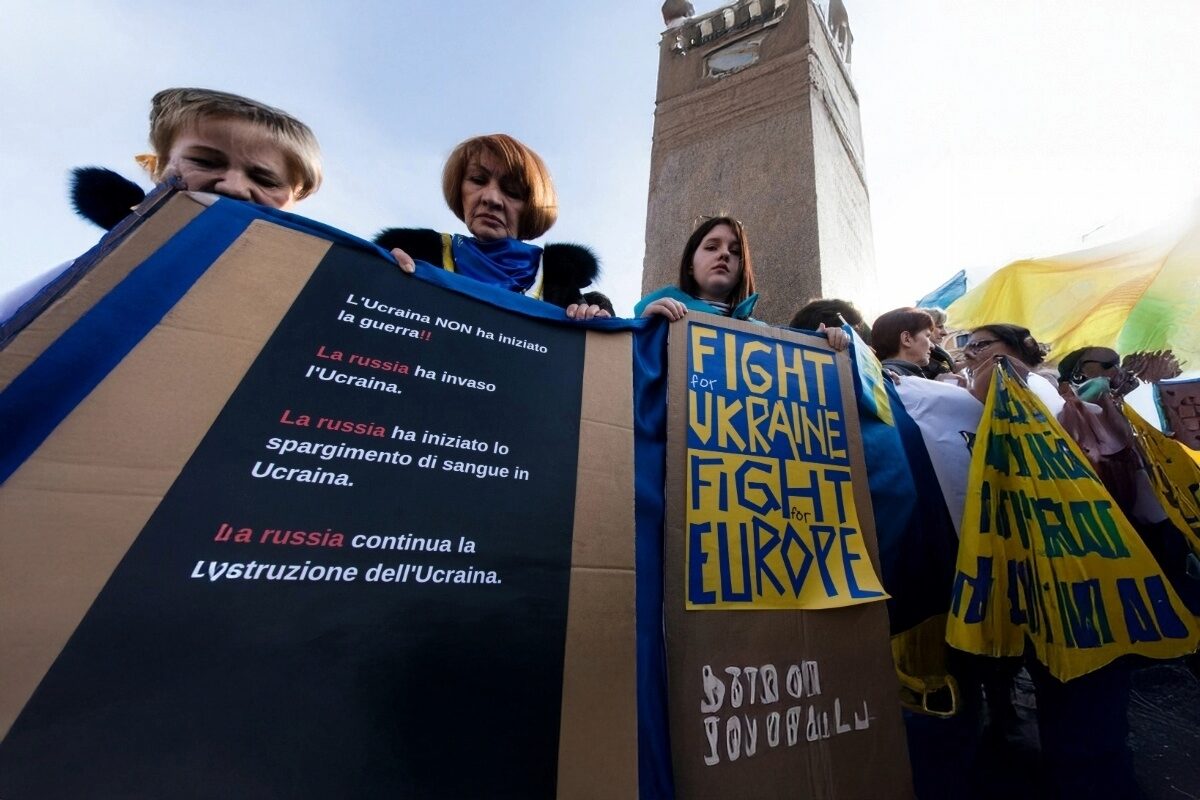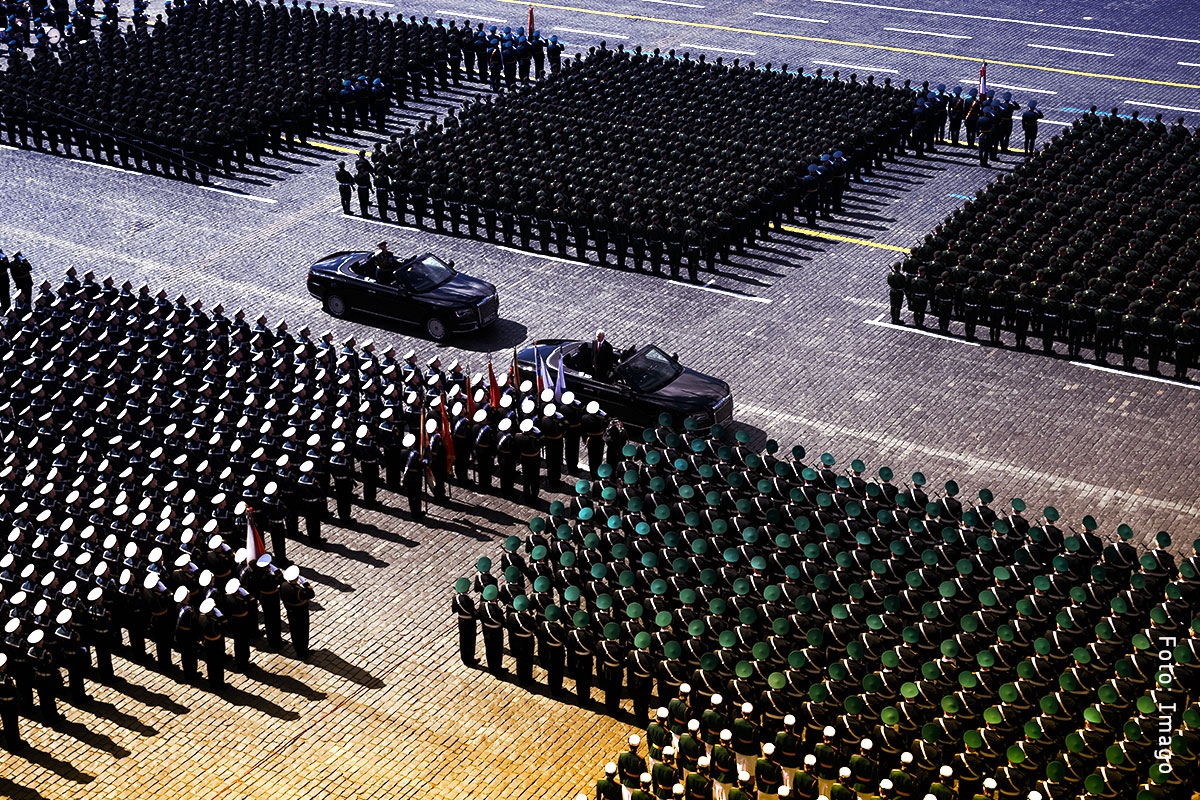“Our Strategic Goal is to Weaken or Change the Kremlin Regime”

Former Lithuanian Prime Minister Andrius Kubilius has been a member of the European Parliament since 2019. As the parliament’s rapporteur on relations with Russia, he is a point man for promoting and coordinating sanctions against the Putin regime and support for the exiled opposition. We interviewed Kubilius, who is standing for re-election in June, about the effectiveness of the EU’s sanctions against Russian individuals.
Question: Mr Kubilius, the European Court of Justice last week annulled sanctions imposed on Russian billionaires Mikhail Fridman and his business partner Petr Aven on the grounds that the EU had failed to provide sufficient evidence that the two had supported the Kremlin’s policies against Ukraine. Many have called this a blow to the European sanctions policy. How do you see this case?
Answer: First of all, this is evidence that the EU is an organization under the rule of law. Actually that could be a good example for Russia. However, the ruling also shows that our sanction policy management and implementation demands an upgrade. We need to provide clearer evidence that a person who is included on the list has committed clear violation of our rules. We should also take our decisions more centralized. Currently, a lot depends on national member states. That is why I have proposed that we should have a special Commissioner on Sanctions in the next EU-Commission. Maybe that will allow us to avoid such mistakes.
Q: What about introducing more flexibility into the sanctions regime? Apparently, there has been no case where sanctions were lifted after an individual distanced himself/herself from the Putin regime and the war.
One of the possible reasons that this regime collapses could be actions inside or near the Kremlin
A: We were actually trying to put such language into our parliamentary report on sanctions, but that report has now been postponed to the next parliament. We also hear a lot from the Russian opposition about such proposals. We need to be very clear that our goal must be to reduce the threat from the current Kremlin regime. One of the possible reasons that this regime collapses could be actions inside or near the Kremlin, including by oligarchs and other elite members.
Q: How realistic is it that leading regime figures would denounce Putin?
A: It should be our strategic goal to weaken or to change the Kremlin regime. Of course, it is not realistic to expect that something like Maidan will happen in Russia. I do not foresee that in the nearest future. Just remember past power changes in Moscow –Stalin, Khrushchev and Brezhnev. Even Perestroika was begun in the Kremlin!
Let’s be brave!
But if anybody in or near the Kremlin is ready to switch sides and to look for possibilities to weaken or dismantle the regime – we need to try that. Let’s be brave! We are talking endlessly about how we can defend ourselves against Putin. But we are not talking about our offensive policies. How we can achieve such changes (inside Russia) which would help to end this war. If such changes lead to some kind of revolution, that would be a major achievement because that could be the basis of sustainable peace on the continent. Let’s not forget that the authoritarian Kremlin regime is now the biggest threat to peace in Europe!
Q: There has been considerable debate in Europe about visa policies versus Russia. What is Lithuania’s experience?
A: Among other things, we have a special programme to allow scientists from Belarus to establish themselves in Lithuania. We also issue humanitarian visas to both political opposition and civil society representatives from both Russia and Belarus. The numbers are quite impressive. It is in our national interest to have a normal Russia and a normal Belarus next to our territory.
Q: And what is your stance of a blanket visa-ban against Russians?
A: We in Lithuania have introduced restrictions on tourism and work visas coming from Russia. But we keep issuing humanitarian visas. And for Belarusians we even keep work visas, although there are concerns because the numbers are quite high.
Q: What is more important right now for EU policymakers – strengthening sanctions or stepping up military aid?
A: From my point of view, it is military aid. For the time being, our military assistance is such that we allow Ukraine not to lose the war, but it was far away from a chance to win.
If we want Ukraine to win the war, our assistance should be around 100 billion euros per year
Last year Russia spent some 100 billion euros in the war, while Ukraine managed to spend 80 billion, half of which was Western aid. If we want Ukraine to win the war, our assistance should be around 100 billion euros per year. But in some Western capitals, including Berlin, there is a fear of what will happen in Russia if the Putin regime collapses. That is where we need a European grand strategy. (Ukrainian victory) is the most important instrument at our hands to open the possibility for positive transformation in Russia!
Andrius Kubilius served as Prime Minister of Lithuania twice from 1999 to 2000 and from 2008 to 2012. He has been an MEP since 2019 and is a member of the Committees on Foreign Affairs and on Industry, Research and Energy. Kubilius is Co-Chair of the Euronest Parliamentary Assembly and the Parliament’s Permanent Rapporteur for Russia. He is also head of the EPP Lithuanian delegation and Chairman of various interparliamentary groups, including the Baltic Caucus and the Friends of European Russia Forum. He is the co-founder of the international cross-party networks United for Ukraine (U4U) and United for Moldova (U4M). Kubilius has been a member of the Lithuanian Seimas from 1992 to 2019.
![]()
Did you like this article? If yes, you can support the independent editorial work and journalism of LibMod via a simple donation tool.
Donate via PayPal
![]()
We are recognized as a non-profit organization, accordingly donations are tax deductible. For a donation receipt (necessary for an amount over 200 EUR), please send your address data to finanzen@libmod.de
Related topics
order Newsletter
Stay tuned with our regular newsletter about all our relevant subjects.





